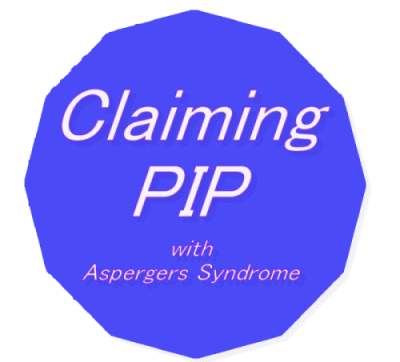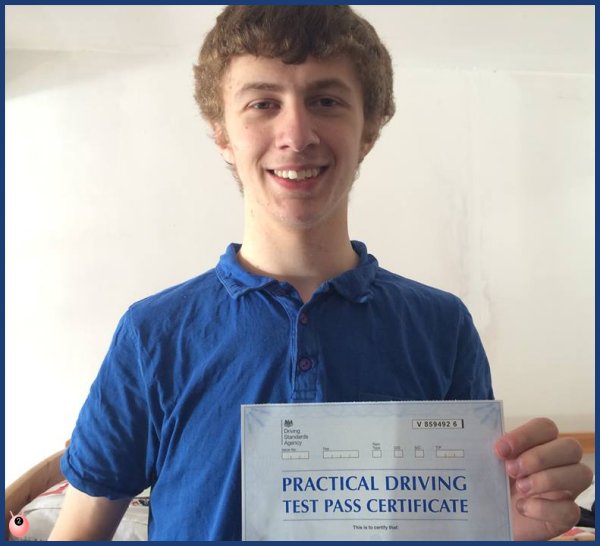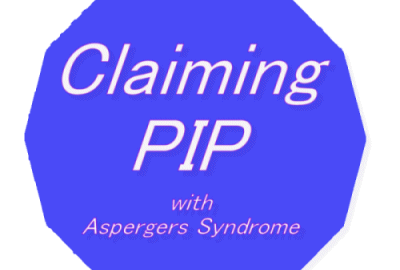Moving from Disability Living Allowance (DLA) on to Personal Independence Payment (PIP) was always going to be a difficult time – for one we (my son and I) struggle with change. But with the horror stories added in to the mix with the uncertainty it wasn’t something we were looking forward to. In fact if it were just about the money I wouldn’t have bothered, but I believe it helps him have access to DSA (Disability Support Assist) at University.
Letter asking to move from DLA to PIP
First of all the letter came about the switch earlier than I was expecting. I thought it would be when my son’s DLA ran out that he had to apply – so it was a bit of a shock that it came 3-4 months earlier. I then had to make a phone call (and let’s be honest who likes making those, but especially not people on the autistic spectrum) with very little information about what would be expected during that call. Luckily I am on a few autism forums and was reassured that it would be basic information which could be added to once the form arrived.
The First PIP Phone Call
First of all you need to ring up by a certain date that is on the letter. I wanted to do this as soon as possible so I didn’t forget. In hindsight if you leave it longer then you are going to be paid at the rate you are on now for longer – this is because as long as you do everything by the dates they say then they will continue to pay you up until a decision has been made. They ask for you to verify information that they have on record such as name, address; details of healthcare professionals etc. Anything I didn’t know the answer to they said it was ok I could just add it on the form. I was asked for permission to move over any “evidence” on file from the DLA claim to be moved over to PIP. It was also explained that the PIP form would arrive in the post.

The PIP Claim Form
Personally I felt that this form was easier to fill in, if not omitting a lot of areas that those with Asperger’s may struggle with (although there is the page at the end where you can add it). The biggest issue for me is that this time it could not be typed up and there wasn’t really a lot of room. It was straight forward in each section with yes/no tick boxes and comment sections to elaborate. There wasn’t lots and lots of repetition about the same thing. Again we had a date by when the form was due by and DLA would continue to be paid as long as the form was back by that date.
Looking at the criteria I felt positive that my son with Aspergers Syndrome would be easily entitled to enhanced care and not at all on mobility. Basically because I felt that they had moved his mobility needs over to the care section (as he is physically able to move it is the help he needs mentally with this). I thought there was evidence enough for him to tick the boxes to get those 12 points and that he would be okay. In fact, somehow I had even convinced myself that he wouldn’t need an interview. Filling in the form made me physically sick though. I hate having to write them out, think of how he is struggling, and especially his bad days. On doing the form and talking to his support mentor I realised that he wasn’t actually doing as well as I thought he was. The biggest problem for us is that the lady who is helping him wouldn’t be able to help any more without the right funding. I am really anxious that if he does not receive PIP this will fall away completely and the University will not be able to help him. I felt reassured though that PIP is meant to be for help that is required – whether you receive it or not. For example, you are meant to be able to make meals from fresh (including reminding and supervising) – the fact that my son eats, but not properly should not be an issue.

Photo Credit: Annie Spratt
The PIP Interview
I should have known from the fact the envelope was white (and not brown) that a decision had not been made but I was still shocked at the invitation to attend an interview. It was rather short notice and at 9am in the morning. This meant I had to get my son back from University and sort childcare for my other children. All this was sorted though and then the real realisation set in that the things on the form would have to be discussed in front of my son with Aspergers.
My son lives in a bubble and, although he realises that he struggles with communication with others, there are just some things that he does not understand that he does because of his Aspergers. I went through the form and the different areas with him – and in his own words it made him feel shit. I had to reassure of him of how well he is doing, and how proud of his progress we are. I had to, in the gentlest of terms, explain how Aspergers could make him egocentric, and what that meant: I told him that it didn’t make him a bad person, but that this could sometimes annoy others. I am sure you can think of many other scenarios where my son is unaware of his condition but they are far too personal to blog about. Let’s say the whole thing has made me feel like a rubbish parent because I should be supporting him and not letting him struggle. The thing is, and I believe it is true, that we HAVE to let him be independent and little by little he is managing and it is amazing. I do appreciate others are worse off and can never be in this position, it just feels like people are penalised (with support taken away) when they try to help themselves (instead of it going when they are more able to deal without it – again this is not about the money but the doors it opens to support for him).
The PIP interview itself started badly as I had completely forgotten that we both needed to bring two forms of ID. Luckily a bank card and driving licence was fine – and we both had these (although the fact my son had both of these probably went against him – as it showed that he could drive, even though he doesn’t because of the unfamiliar area he now lives in, and apparently having a bit of his money and a bank account demonstrates he is fine with finances – that and simple maths questions he was asked!). In the waiting room my son went really light-headed and his anxiety was through the roof. They had a water dispenser and I was able to get him 2 cups before we went in (nothing like being punctual!) – this also meant that he had a cup to fidget with.
The guy that took the interview straight away let us be aware that he knew about autism and had a family member with severe autism. This was a double-sided coin as he was able to really engage with my son, keeping language simple and was able to extract answers from him (and how to help him when he got really anxious); but on the other hand this meant he could not say that my son had any communication issues! Everything was explained well in simple terms and we were told that the interview would give us his opinion at the end – so it was all transparent. Personally I felt that a lot of the questions were leading or that the interviewer would suggest to my son how he should answer (like, “I am sure a bright lad like yourself doesn’t, but do you ever need anyone to simplify language for you?” – even though I had had to explain the do you take medication question to him!). Again no idioms etc, or other no simple language was used, and the fact that my son struggled with communication seemed to go down as just “anxiety.” None of the paperwork used in his DLA claim had been sent over for PIP but I was told there wasn’t any point in sending it now. This meant that they did not even so much as have a diagnosis for his Asperger’s syndrome but he took my word for it and asked who diagnosed him. I feel that the interview is totally not suitable for a condition of this nature – for one those who have a communication disorder feels unfair that they don’t seemingly say the right thing (I could go on and on about this but for example, when asked how often he showered the interviewer demanded an answer so he just made one up because he felt he had to say something!)and how my son was made to feel (not the interviewer’s fault but the nature of the interview) was surely a human rights issue. I am really not happy.
The PIP Interview Verdict
We do not know the actually results of the interview as it has to be sent off and scored but the guy doing the interview told us what he thought and would be putting his case forward. Basically what he said was that my son was, in his opinion, on the border. That there was no way we could suggest he has communication issues because he went to a main stream school and is now at University with no statement of special educational needs or one-to-one support. That he is able to catch a train (from University to home, one familiar route and would need help if anyone spoke to him, anything went wrong or changed but we shall ignore all that), dress and shower (who cares if the clothing is right or whether the shower is just him getting wet and not clean, and needs prompting to even do that!) living independently (even if he has a mentor and contact with parents for support with this). He did however feel that he has issues when it comes to food and socialising. I guess we just have to see now. It was awful for our son to go through all that and it made him feel really ill. If he does receive standard care I wont fight it (even though I think it should be enhanced) because there is no way I want to put him through any more than he has. Apparently a decision can take around 6-8 weeks – let’s hope it is more the 8 so that he can continue with his DLA until then. Fingers crossed that all this was not for nothing for him.
Do you have any experiences with moving from PIP to DLA?
PIP is a benefit that helps with the extra costs of a long-term health condition or disability for people aged 16 to 64 which is phasing out DLA.
